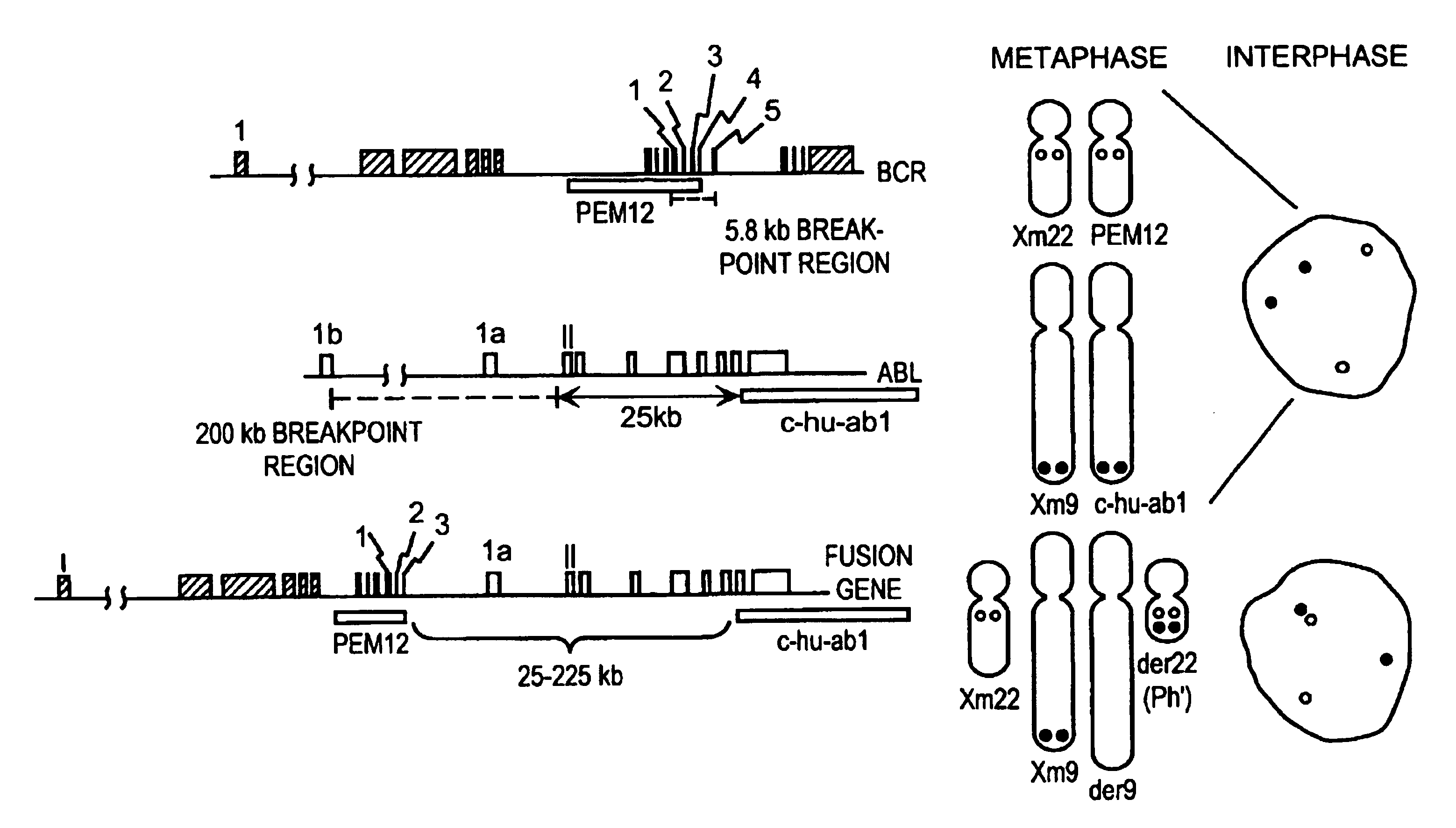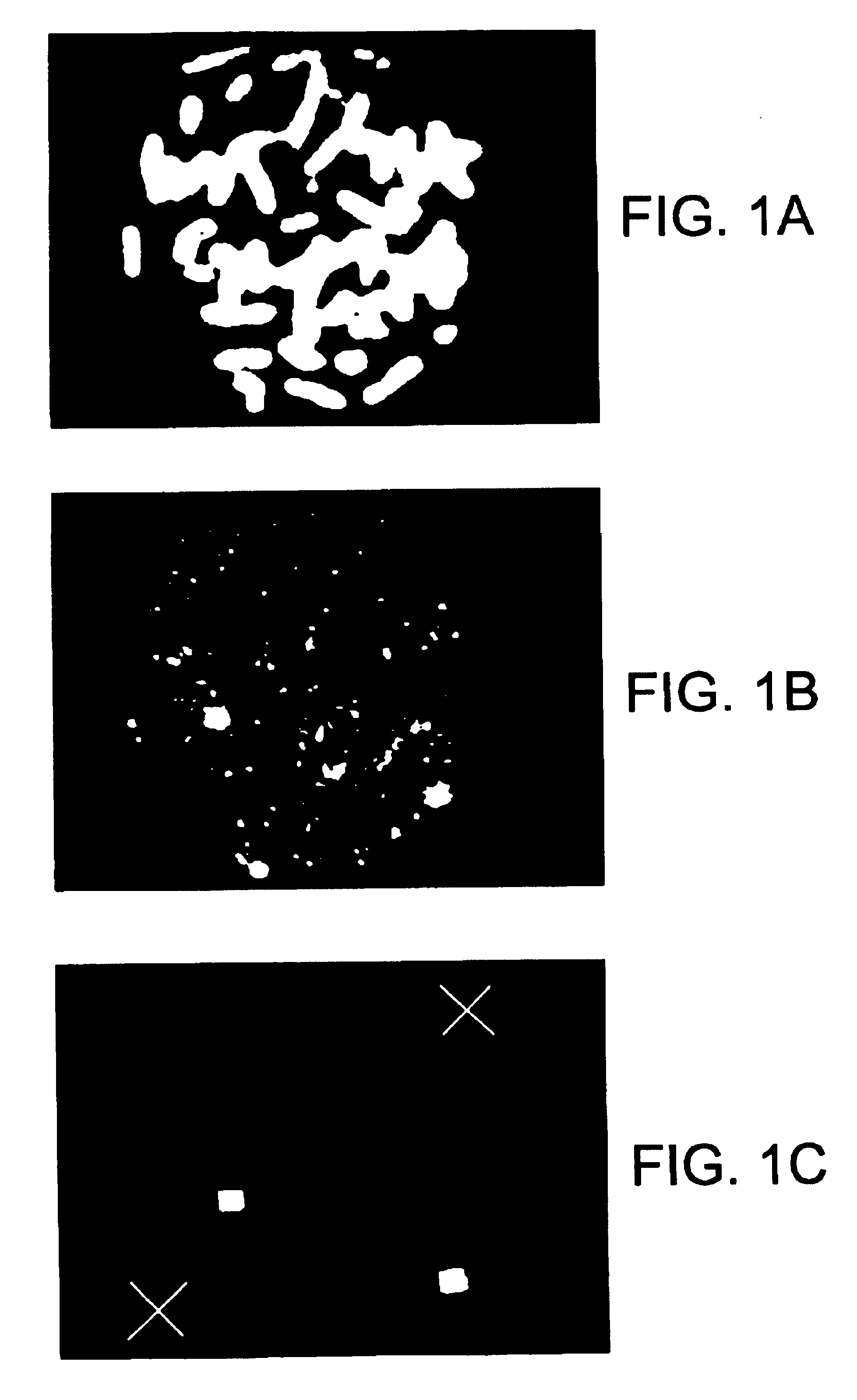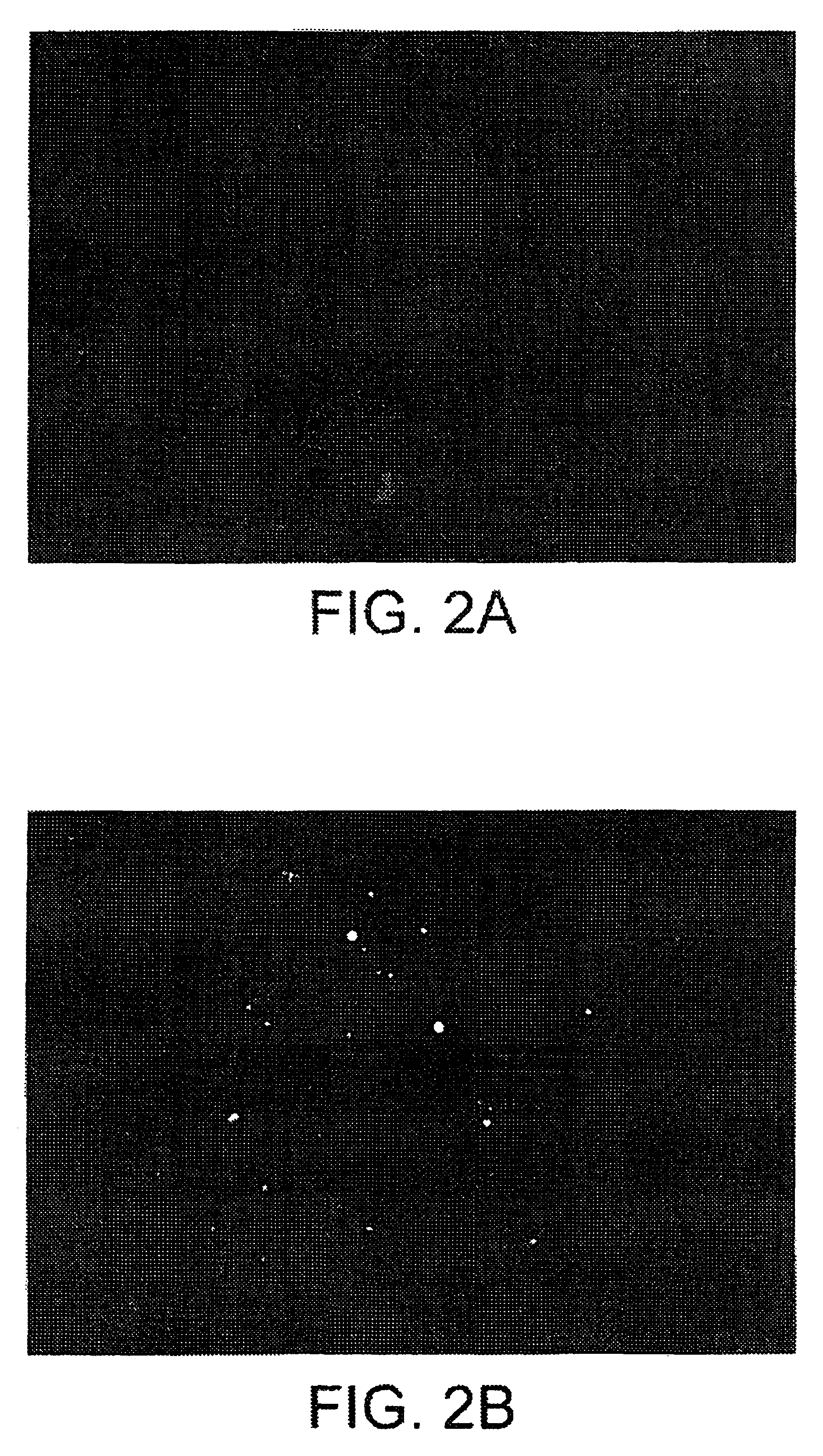Chromosome-specific staining to detect genetic rearrangements
a chromosome and gene technology, applied in the field of cytogenetics, can solve the problems of high complexity of nucleic acid probes useful for the detection of genetic rearrangements, and achieve the effect of improving analysis, rapid and highly sensitive detection of chromosomal abnormalities
- Summary
- Abstract
- Description
- Claims
- Application Information
AI Technical Summary
Benefits of technology
Problems solved by technology
Method used
Image
Examples
case i
[0310] The complexity of the probe is about 50 kb to about 100 kb. (In this case the complexity may be approximately equal to L since the probability is that no repetitive sequences will typically occur with more than a few copies in such a number of bases). Using a standard hybridization mixture (as exemplified in Section VI.B, infra), the target can be hybridized with about 2 ng of labeled probe DNA in 10 ul of hybridization mix, corresponding to approximately 1 pg / ul per kb of specific sequences (as used in Section VI.B, infra). Suppose the hybridization is to a slide containing 104 cells (a typical number), and each cell has about 6 pg of DNA, (typical for mammals). Then in this model calculation, there is 3 pg of shared repetitive sequences per cell. Thus, for 104 cells there are 3×104 pg or 30 ng of shared sequences on the slide. Similarly, there is 104×0.5×105×6 / 3×109 pg=1 pg of target for the specific sequences. The probe contains 1 / 2×2 ng or 1 ng of shared sequences and 1 n...
case ii
[0312] As the size of the target region is increased, the complexity of the probe necessarily is increased, and the amount of DNA in the hybridization mix needs to be increased in order to have a sufficient concentration of each portion of specific sequence to hybridize. Also, if one desires to decrease the hybridization time of the procedure, the probe concentration must be increased. In these situations, the increase in probe concentration results in an increase in the amount of shared sequences in the hybridization mixture, which in turn increases the amount of hybridization that will occur to the shared sequences in the target area or areas, thereby reducing the contrast ratio.
[0313]With very high complexity probes spanning several entire chromosomes, L / G can approach 1. In order to stain such a portion of the genome within a reasonable time, for example, overnight, the concentration of labeled nucleic acid needs to be increased, for example, 200 ng in 10 ul of hybridization mix...
PUM
| Property | Measurement | Unit |
|---|---|---|
| concentration | aaaaa | aaaaa |
| temperature | aaaaa | aaaaa |
| temperature | aaaaa | aaaaa |
Abstract
Description
Claims
Application Information
 Login to View More
Login to View More - R&D
- Intellectual Property
- Life Sciences
- Materials
- Tech Scout
- Unparalleled Data Quality
- Higher Quality Content
- 60% Fewer Hallucinations
Browse by: Latest US Patents, China's latest patents, Technical Efficacy Thesaurus, Application Domain, Technology Topic, Popular Technical Reports.
© 2025 PatSnap. All rights reserved.Legal|Privacy policy|Modern Slavery Act Transparency Statement|Sitemap|About US| Contact US: help@patsnap.com



